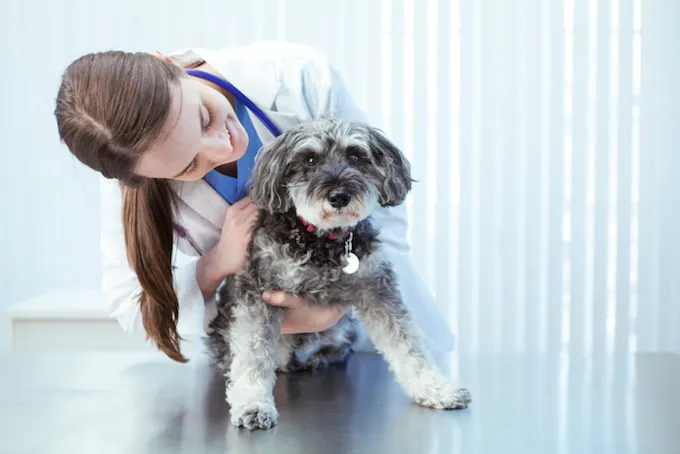Hyperphosphatemia in dogs happens when a dog has too much phosphorus in their blood. The condition is often caused by chronic renal failure.
Generally, the condition affects young and older dogs more than middle-aged dogs.
Note that the condition is different to Hypophosphatemia. That specific condition happens when a dog’s body does not produce enough phosphorus. You can read more about that condition here.
If you see the signs of hyperphosphatemia in your dog, then get to a veterinarian for a proper diagnosis and treatment.
Here’s what you should know about the symptoms, causes, and treatments for the condition.
Symptoms of Hyperphosphatemia in Dogs
The condition produces a range of symptoms depending on the underlying condition. For example, some of the most common symptoms include:
- Dehydration
- Peeing more than usual
- Increased thirst
- Seizures
- Tremors
- Losing muscle mass
Causes of Hyperphosphatemia in Dogs

The cause of the condition can depend on the age of a dog. For example, adolescent dogs can develop it due to increased growth hormones. However, senior dogs can develop it due to kidney or thyroid problems.
Generally, some of the other factors for the condition include:
- Too much vitamin D
- Obstructions in the urinary tract
- Muscle diseases
- Xylitol
- Hyperthyroidism
Treatments for Hyperphosphatemia in Dogs
Firstly, your vet will ask about your dog’s symptoms. Secondly, your vet will ask about your dog’s full medical history.
Thirdly, a full physical examination will be carried out. Blood and urine tests will also be taken. The subsequent results of the tests can highlight the condition.
Generally, treatment can mean a stay in hospital. This is to administer fluid therapy to your dog.
Additionally, medication can be used to lower the levels of phosphorus in your dog’s body. As always, if your vet prescribes your dog any medicine, make sure to stick to the correct dose and frequency instructions. Also, complete the full course of medicine.
Ultimately, changing your dog’s diet is often recommended. This can involve moving to a low protein diet. Your vet will formulate a safe diet for your dog.
While recovering at home it is important to provide your dog with a quiet and calm environment. Also, keep up regular visits with your vet to monitor your dog’s progress.
Have you ever cared for a dog who suffered from this condition? How did your vet help your dog recover? Let us know in the comments section below.









